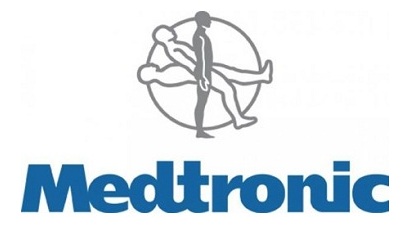Medtronic announced late-breaking clinical data from the STROKE AF clinical study, which showed large and small vessel disease stroke patients had a 10-fold increase in AF detection with the Reveal LINQ™ insertable cardiac monitor (ICM) at three years compared to patients randomized to standard of care who did not receive continuous, long-term monitoring. The latest results, presented today as a late-breaking clinical trial at the American Stroke Association’s International Stroke Conference (ISC) 2023, build on the STROKE AF study 12-month primary endpoint results published in JAMA in June 2021.
Over the first year, 12.5%* of patients in the ICM arm had AF detected compared to 1.8% of patients randomized to standard of care (consisting of external cardiac monitoring such as 12-lead ECGs, Holter monitoring, telemetry, or event recorders). At three years, the rate of AF detection increased to 21.7% of patients in the ICM arm compared to 2.4% in the control arm, resulting in a statistically significant hazard ratio of 10 (95% CI 4.0-25.2, p<0.001). The study also showed that 67% of patients (31 out of 46) in the ICM arm had clinically relevant AF episodes lasting more than one hour in duration, while 88% of AF episodes were asymptomatic.
“What these data show us is that we can’t always rely on patients to tell us they are having palpitations or irregular heartbeats because the majority of AF detected in the study was asymptomatic,” said Lee H. Schwamm, M.D., chief digital advisor, Mass General Brigham, C. Miller Fisher endowed chair in vascular neurology and professor of Neurology at Massachusetts General Hospital and Harvard Medical School. “Importantly, these outcomes underscore the criticality of long-term monitoring with ICMs in these patients as much of the AF detected would have been missed at 30 days. AF is a risk that we can’t afford to miss for patients who have already suffered a stroke — the consequences could be devastating.”
Stroke impacts more than 795,000 people every year. More than 87% of strokes are ischemic strokes, which occur when vessels that allow blood to flow to the brain are blocked.[1] Patients with AF are at a five-fold increased risk for ischemic stroke.
While the STROKE AF study was not designed to detect or explain treatment differences, only 70% of patients with AF detected in the ICM arm were subsequently started on anticoagulation therapy—medication that helps prevent blood clots.
New Insights on Predictors of AF
The one-year outcomes from the STROKE AF study Predictors of AF analysis recently published in JAMA Neurology, add insights for predicting AF in patients with small or large vessel ischemic strokes. Patients with either congestive heart failure (CHF) and/or left atrial enlargement (LAE), for example, had an AF detection rate of 23.4% compared to 5% for patients with neither attribute, suggesting these patients are at greater risk of having AF.
“The STROKE AF Predictors analysis helps us better identify the patients who are most at-risk of unsuspected AF, which can inform stroke prevention strategies,” said Schwamm. “Not every ischemic stroke patient may need an ICM, but these data suggest some patients are more likely to experience AF and should be monitored more closely.”
The STROKE AF study is a prospective, randomized study of 496 large and small vessel stroke patients across 33 centers in the U.S. The Reveal LINQ ICM was cleared in the U.S. in 2014 and is available worldwide.




















